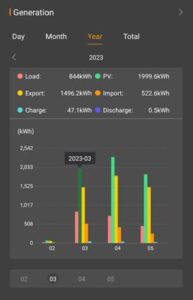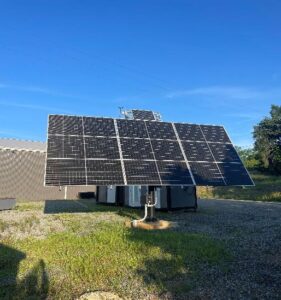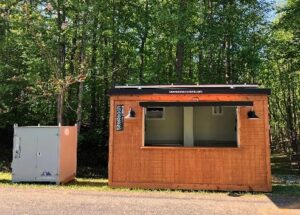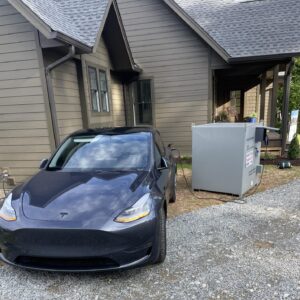Overview
Battery Energy Storage Systems (BESS) are advanced systems that store electrical energy in rechargeable batteries for later use. These systems play a crucial role in modern energy management by providing a means to store surplus energy generated during periods of low demand and supplying it during peak demand periods or when renewable sources are not generating power, thereby enhancing grid stability and reliability.
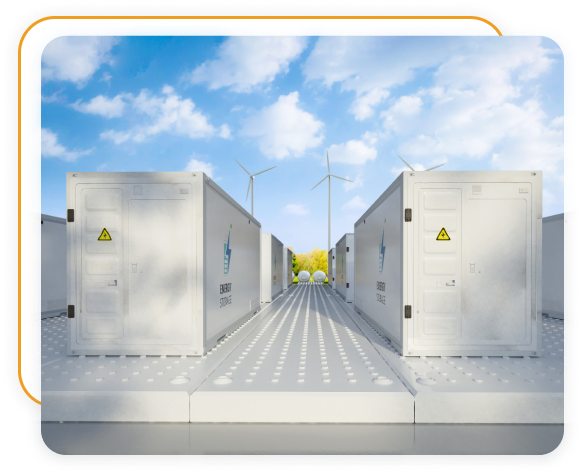
Products
SRE Cube Series
- Optimized Solar with Automatic Actuating Solar Panels with Optic Eye Technology
- Scalable energy storage and power management
- Plug and play distribution
- Customizable
Power Cube Series
- Designed for Mobility and Portability
- Fully enclosed weather resistant
- Built‑in Solar, Grid, or Generator Charge Ports
- Built‑In ports for multiple Power Output Sources
Containerized Solutions
- 500kW+ Turnkey Containerized Solutions
SRE-L3-BESS Solutions with Indoor or Outdoor cabinets with inverters
- Fully integrated energy storage solution=hybrid inverter, battery and fleet management
- SRE BESS 208V
- SRE BESS 480V
How it works
BESS typically consist of three main components: batteries, power conversion systems (inverters), and a control system. When excess electricity is generated, usually from renewable sources like solar or wind, the power conversion system converts it into direct current (DC) to charge the batteries. During times of high demand or when renewable sources are not producing electricity, the batteries discharge stored energy, and the power conversion system converts it back into alternating current (AC) for distribution into the grid or for use by consumers.

BESS can be charged from various sources
- Renewable energy sources such as solar, wind, or hydroelectric power
- Off-peak electricity from the grid, when electricity prices are typically lower.
- Surplus electricity from distributed generation systems like rooftop solar panels.
Benefits
In summary, Battery Energy Storage Systems play a vital role in modern energy infrastructure, providing a flexible and efficient means of storing and utilizing electrical energy to support grid stability, integrate renewables, and optimize energy management.
Gallery
BESS Agnosticism
By being agnostic in these aspects, Battery Energy Storage Systems offer flexibility, scalability, and compatibility across a broad spectrum of energy sources, grid configurations, applications, and battery technologies. This versatility makes BESS highly adaptable solutions for optimizing energy storage, management, and distribution in diverse energy environments.
FAQ
How would BESS benefit disaster response contractors?
Battery Energy Storage Systems (BESS) offer several benefits to disaster response contractors, particularly in situations where access to reliable electricity is disrupted or limited due to natural disasters or emergencies. Here's how BESS could benefit disaster response contractors:
Emergency Power Supply
BESS can provide a reliable source of backup power during emergencies when the main electrical grid is down or unreliable. This ensures that critical infrastructure, such as communication systems, medical facilities, and emergency shelters, remains operational, enabling disaster response contractors to carry out their duties effectively.
Mobile Power Solutions
Portable BESS units can be deployed quickly to provide power in remote or hard-to-reach areas affected by disasters. These mobile power solutions can support various equipment and tools used by disaster response teams, including lighting, communication devices, medical equipment, and power tools, facilitating rescue and recovery efforts in challenging environments.
Grid Resilience
By integrating BESS into critical infrastructure and emergency response facilities, disaster response contractors can enhance the resilience of the electrical grid against future disasters. BESS can help mitigate the impact of power outages, reduce downtime, and improve the overall reliability of energy supply during and after disasters, ensuring continuity of essential services.
Energy Management and Optimization
BESS can be used to optimize energy usage and reduce dependency on fossil fuel-powered generators during disaster response operations. By storing excess energy from renewable sources or off-peak electricity, BESS can minimize fuel consumption, lower operating costs, and extend the runtime of generators, making disaster response operations more sustainable and cost-effective.
Scalability and Flexibility
BESS can be scaled up or down based on the specific needs of disaster response operations, providing flexibility to adapt to changing requirements and resource constraints. Whether deployed in small-scale temporary shelters or large-scale emergency response centers, BESS can be customized to deliver the required power capacity and runtime to support critical operations effectively.
What are example uses?
During Hurricane Katrina, Battery Energy Storage Systems (BESS) could have been utilized in various ways to mitigate the impact of the disaster and support relief efforts. Here's an example of how BESS could have been used during Hurricane Katrina:
Emergency Shelter Power Backup
In the aftermath of Hurricane Katrina, many emergency shelters and evacuation centers faced power outages due to damaged electrical infrastructure. Portable BESS units could have been deployed to provide backup power to critical facilities, such as shelters, medical centers, and command posts, ensuring continuous operation of essential services.
Scenario
A temporary emergency shelter is set up in a community center to accommodate displaced residents. However, due to widespread power outages caused by the hurricane, the shelter loses access to electricity, affecting lighting, heating/cooling systems, communication devices, and medical equipment.
BESS Implementation
Portable BESS units are quickly deployed to the emergency shelter to provide backup power. Solar panels installed on the roof of the community center generate electricity during daylight hours, which is stored in the BESS for use during nighttime or cloudy periods. The BESS powers essential equipment and facilities in the shelter, ensuring a safe and comfortable environment for evacuees and enabling relief workers to carry out their duties effectively.
What are the benefits?
Continuity of essential services
BESS ensures that critical facilities such as lighting, heating/cooling systems, communication devices, and medical equipment remain operational, enhancing the safety and well-being of evacuees.
Reduced dependency on external power sources
By utilizing renewable energy sources and energy storage, BESS reduce reliance on unreliable or unavailable grid power, mitigating the impact of power outages and improving energy resilience in emergency situations.
Mobility and scalability
Portable BESS units can be easily transported to different locations and scaled up or down based on the specific needs of emergency response operations, providing flexibility and adaptability to changing circumstances.
In summary, during Hurricane Katrina, Battery Energy Storage Systems could have played a crucial role in providing emergency power backup to shelters and critical facilities, ensuring continuity of essential services and supporting relief efforts in the aftermath of the disaster.


